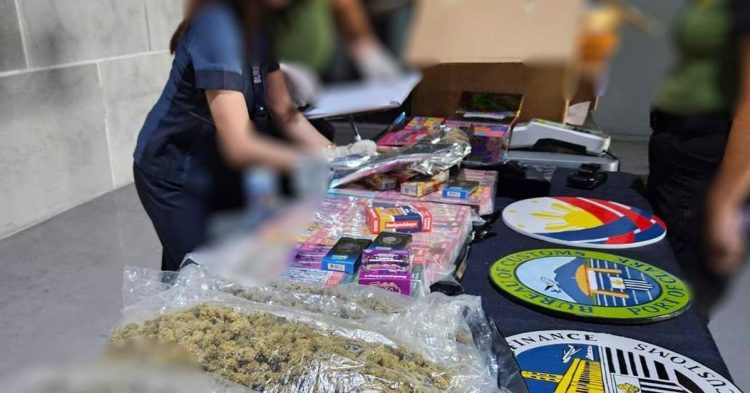In a recent operation at the Port of Clark in Pampanga, Philippines, customs officials confiscated approximately ₱4 million worth of high-grade marijuana, known as ‘kush’, along with numerous cannabis-infused disposable vapes. The crackdown is part of the Bureau of Customs’ ongoing efforts to combat the importation of illicit substances.
The items arrived from California, USA, on May 25, concealed in a package misleadingly declared as an ‘accessory.’
Contained within the package were 2.13 kilograms of kush and 156 disposable vapes laced with cannabis. An X-ray scan initially flagged the parcel for its unusual contents, prompting a thorough physical check that led to the find.
Upon testing by the Philippine Drug Enforcement Agency (PDEA), the presence of marijuana was confirmed, classifying the substances under the dangerous drugs category by Republic Act No. 9165. Subsequently, a seizure and detention warrant was issued against the shipment.
Earlier in April, customs had already seized significant amounts of kush and marijuana-infused vapes at the Manila International Container Port, valued at ₱102 million.
This includes a find of 82 kilograms of kush and 1,881 vape pens hidden in parcels from Thailand, inside boxes typically used by expatriates to send gifts back home.
Another operation on April 29 led to the discovery of 2.5 kilograms of marijuana and 70 vape pens containing cannabis oil, concealed in packages labeled as everyday items from the United States and Canada, valued at ₱3.6 million.
The PDEA has issued warnings about the increasing market presence of such vapes, emphasizing the potential risks to unknowing consumers, particularly the youth.
The government has also begun mandatory certification of both imported and locally manufactured vape products to improve market regulation under the recently enacted Vaporized Nicotine and Non-Nicotine Products Regulation Act (Republic Act No. 11900).
From the start of the year until May, the Department of Trade and Industry has seized illegal vape products worth ₱25.87 million, indicating a strict enforcement posture to protect consumers, especially young ones.










